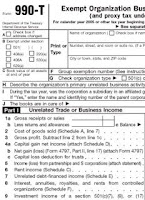We are facing a big deadline this week. We have multiple grants due at the same time and everyone has his or her head down and nose to the grindstone, but we can always count on Derek to help us see the humor of it all. Here are some humorous thoughts from non-profit consultant and expert grant writer, Derek Link, on slowing down time when deadline time is racing closer.
Time flies when you’re approaching a deadline. I’m pretty sure that Superman is the only being, real or fictional, who can turn back time. If you’re approaching a deadline – mere mortal that you are – here are a few places you can go where in my experience time can actually slow down.
- The DMV.
- Customer service calls to the phone company.
- Jogging on the indoor track at Sun City.
- Meeting with an IRS agent.
- A long line at the grocery store with a rookie cashier, a bad receipt tape, and a customer who’s using their debit card for the first time while arguing about the amount her single tomato was discounted.
- The post office at lunch.
- Watching the calendar after hiring a building contractor with a bunch of Better Business Bureau complaints.
- Technical support calls from – or to – India with “Roger”, “Jason”, or “Howard”.
- Auto dealerships after giving up your car keys.
- Driving and waiting for the “Code 3” police car to pass you knowing you were five mph over the limit.
- Waiting for a copier repairman or anything else on grant deadline day.
So if time seems to be going too fast and your deadline is staring you down like an angry railroad union member at the helm of a locomotive, take yourself away to a place where time slows down. Wouldn’t it be wonderful if we could merge these time warps and make it slow down for important stuff and speed up for annoying stuff? Oh Superman, where are you!?
———————————-
Related posts:
Grant Writing and the Space/Time Continuum
Stress Relief through Laughter
———————————
Don’t forget to visit GrantGoddess.com for tips and ideas to improve your grant writing skills!





